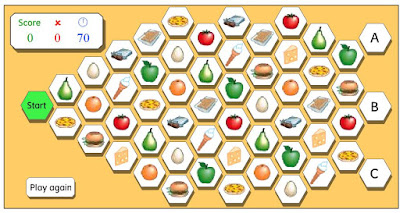Do you remember the «Talk about yourself» worksheet we did last week? Today is time to do the same but speaking. Kevin helps us!
We will also do it in nine parts or phrases:
1. Say «Hello». Hello...
2. What’s your name? My name is...
3. How old are you? I’m...
4. What month is your birthday? My birthday is in...
5. What have you got? What you haven’t got? I’ve got... / I haven’t got...
6. What can you do? What can't you do? I can... / I can’t...
7. What are you wearing? I’m wearing...
8. What is your favourite animal? My favourite animal is...
9. What do you like for breakfast, lunch and dinner? I like...
Let's go! It's your turn! Practice first (last week's worksheet will help you). Prepare everything you need, record your phrases on video and send it to me.
Resumen tareas: «Talk about yourself (speaking)» (10-6-20)
—Siguiendo el modelo de la ficha «Talk about yourself» de la semana pasada, hoy toca hacer la misma actividad pero oral.
—Ver y escuchar atentamente el vídeo de Kevin. Lo usaremos como ejemplo.
—Repasar las nueve frases que se deben decir (esquema arriba). Valen las de la ficha de la semana pasada, u otras.
—Preparar algunas cosas (si se quiere) para «escenificar» las frases: ropa, juguetes, comida...
—Grabar el vídeo con las frases (si algún niño/a prefiere grabar sólo audio, también vale).
—Por último, enviar los archivos a fogarnews@gmail.com a través de wetransfer.com. Damos hasta el sábado 13 para hacerlo. Animo!













